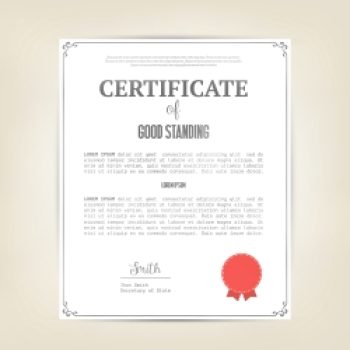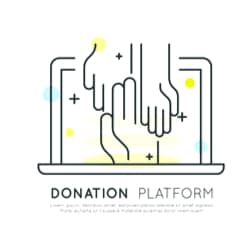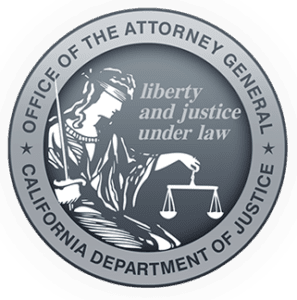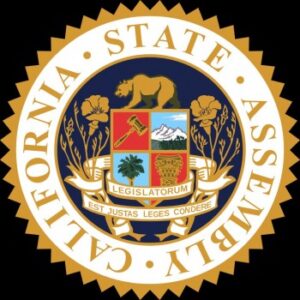In the past few months, a sizable number of nonprofit organizations were surprised to find themselves blocked from receiving donations through various online fundraising platforms including Facebook. The cause was failure to be in “good standing” in California. This “good standing” requirement is part of California’s law governing charitable fundraising platforms. Known as Assembly Bill 488 or AB 488, effective on January 1, 2023, one provision prevents platforms from facilitating donations to any organization that is not in “good standing” in California.
Unfortunately, a charitable organization’s failure to be in good standing in California has implications far beyond the State. Charitable fundraising platforms will generally block all donations made to any organization that is not in good standing, not just those made by California residents. In many cases, the first time the organization became aware that they had a delinquency issue that needed to be resolved was when they received a notice sent by a fundraising platform informing them that they are not in good standing in California. Unfortunately, many of these charities learned the hard way that resolution is neither quick nor easy, resulting in significant loss of donations, not to mention the expenses incurred when getting back into good standing. Given the significant amount of fundraising now taking place through online fundraising platforms, it is paramount that charities ensure that they are in good standing pursuant to California’s new law.
How to Comply with California’s New “Good Standing” Requirement
Under AB 488, a charitable fundraising platform or platform charity may only “solicit, permit, or otherwise enable solicitations, or receive, control, or distribute funds from donations for recipient charitable organizations or other charitable organizations in good standing.”
For a summary of the key provisions and definitions of “charitable fundraising platform” and “platform charity,” see California Enacts New Law to Regulate Charitable Fundraising Platforms.
For a summary of the California Attorney General’s notice advising which provisions of AB 488 go into effect on January 1, 2023, and which were delayed due to pending issuance of implementing regulation, read Key Provisions of California Assembly Bill 488 Regulating Charitable Fundraising Platforms Take Effect January 1, 2023. According to the notice, the “good standing” requirement went into effect on January 1, 2023.
To comply with California’s “good standing” requirement, fundraising platforms and platform charities receiving funds through the platform must ensure that, with respect to each recipient organization: (1) the organization’s federal tax-exempt status has not been revoked by the Internal Revenue Service (“IRS”); (2) the organization’s tax-exempt status in California has not been revoked by the California Franchise Tax Board; and (3) the organization is not prohibited from soliciting or operating in the State by the California Attorney General.
The California Department of Justice (“DOJ”) published a notice which includes links to the three lists that charitable fundraising platforms and platform charities must check for compliance with this requirement.
- The IRS’s Tax-Exempt Organization Search Tool
- California Attorney General’s list of charities that may not operate or solicit in the State
- California Franchise Tax Board’s Revoked Exempt Organizations List
Note that “good standing” does not necessarily mean that every recipient charitable organization included by a fundraising platform or platform charity must be registered to solicit in California. For example, a small, local community organization based in another state that does not engage in solicitation in California, and generally does not receive donations from residents of California, including through fundraising platforms, would generally not be required to register in California due to lack of a sufficient jurisdictional nexus.
Key Reasons that Organizations Fall Out of Good Standing
Common reasons that have caused organizations to fall out of good standing in California, and thereby get blocked by fundraising platforms, include the following:
- The organization was late in registering or renewing registration with the California Attorney General’s office, typically due to late completion of the organization’s IRS Form 990 or audited financial statement, which triggers delinquent status.
- The organization filed its registration renewal paperwork but was sent a notice that the submission was incomplete, but the notice was not received.
- The organization may have been mailed letters from the California Attorney General’s office advising them to register, but those letters were either lost in the mail, went to an incorrect address, or otherwise did not make their way to the right person. Failure to respond by registering (or seeking confirmation of exemption, if applicable, or otherwise establishing with the office that the organization is not required to register) automatically results in a delinquent registration status. The initial letter from the AG advising the organization that it may be required to register may have been triggered by some common scenarios:
- The organization incorporated in the State of California, which, due to coordination between the California Secretary of State’s office and the Attorney General’s office, automatically triggers a letter advising the organization to register with the Attorney General’s Registry of Charitable Trusts. This letter may have gotten lost in the mail, or it failed to elicit a timely response.
- A professional fundraiser or fundraising consultant of the organization listed the charity as a client in its California registration filings, triggering the letter. Since the charity historically had not solicited contributions in California and did not understand the scope of its fundraiser’s services to include California, it may have chosen to ignore the letter.
Note: These misplaced or lost deficiency letters issued by the AG’s office are generally accessible by searching the California AG’s Online Registry Search Tool.
- The organization may have qualified to do business in California in the past, by employing individuals residing in the State. (Note that whether an organization is required to qualify to do business in California is a specific, fact-driven analysis). Once qualified to do business in the State, the organization is unaware that it is subject to annual reporting obligations with the California Franchise Tax Board, thus causing an inadvertent delinquency when such filings are not submitted.
- The organization may have had its 501(c)(3) tax-exempt status revoked by the IRS. This often affects smaller organizations, particularly ones solely operated by volunteers, who were unaware that the organization had an annual IRS Form 990 filing obligation. Failure to file the IRS Form 990 for three consecutive years leads to automatic revocation of federal tax-exempt status as soon as the third annual filing deadline passes.
In a number of cases, the charity at issue may be eligible for a statutory exemption from registration in California due to its status as a hospital, educational institution, or religious organization. While California’s statute does not explicitly require such organizations to confirm their exemption from registration, as a matter of practice, the California Attorney General does require these organizations to confirm their exemption. For more information on registration exemptions, read Are Hospitals, Educational Institutions, and Religious Organizations Exempt from Charitable Solicitation Registration?
The documents and information that must be submitted to confirm an organization’s exemption from registration are outlined in California’s initial registration form instructions, and the AG’s office must issue a letter or notice confirming the organization’s exemption. If California issued a letter advising the exempt organization that it may be required to register, and the letter goes unanswered, even if the organization would otherwise qualify for exemption, the organization will be put on the California AG’s May Not Operate or Solicit List.
Obstacles to Establishing Good Standing (and How to Get Back into Fundraising Platforms’ Databases)
Many charities have found that the process to reinstate good standing is slow and painful. There are multiple steps to address deficiencies, delays in regulatory agencies’ processing of documents, and challenges to communicating an organization’s unique circumstances to the regulatory agencies.
When a charity’s registration with California Attorney General’s office has expired, it must submit its renewal paperwork by US mail, landing the submission in an enormous pile of papers that the state is months behind in processing. Even if an online process is available, the Attorney General’s time to review and final approval could be 90 days or more.
Similarly, the process for reinstatement with the Franchise Tax Board or IRS is cumbersome and time-consuming, involving back filings and reinstatement forms/applications.
Finally, charities should be aware that platforms may require blocked organizations who have resolved delinquency issues to take special steps to reactivate donations through the platform. A number of platforms have issued public guidance on how they are addressing AB 488 compliance, including Meta and Bonterra. Complying with the platform’s process for reinstatement further delays a charity’s ability to fundraise on that platform. The May Not Operate or Solicit List is only updated by the AG’s office once a month, thus further delaying the reinstatement process after organizations have resolved their delinquency.
Final Regulations are Still Pending that May Affect Implementation of the Good Standing Requirement
On November 17, 2023, the California Attorney General’s office issued a third set of Proposed Regulations to implement the provisions of AB 488, which include modifications to the procedures relating to “good standing”. The comment period ended on January 2, 2024. We have been advised that final regulations are expected to be released in the next few months, which could cause some fundraising platforms to revise their procedures. Our firm is watching the status of the regulations. Stay tuned for further updates.
A Final Note
We leave organizations with a final word of advice – Make sure your organization is not delinquent in California! Given the broad, practical implications that failure to be in good standing creates, including the blocking of online donations received from any state through any charitable fundraising platform, organizations should make sure they closely monitor the applicable registration and filing deadlines to ensure they will not fall out of good standing in California.
- Karen l. Wuhttps://perlmanandperlman.com/author/karenwu/
- Karen l. Wuhttps://perlmanandperlman.com/author/karenwu/
- Karen l. Wuhttps://perlmanandperlman.com/author/karenwu/
- Karen l. Wuhttps://perlmanandperlman.com/author/karenwu/














